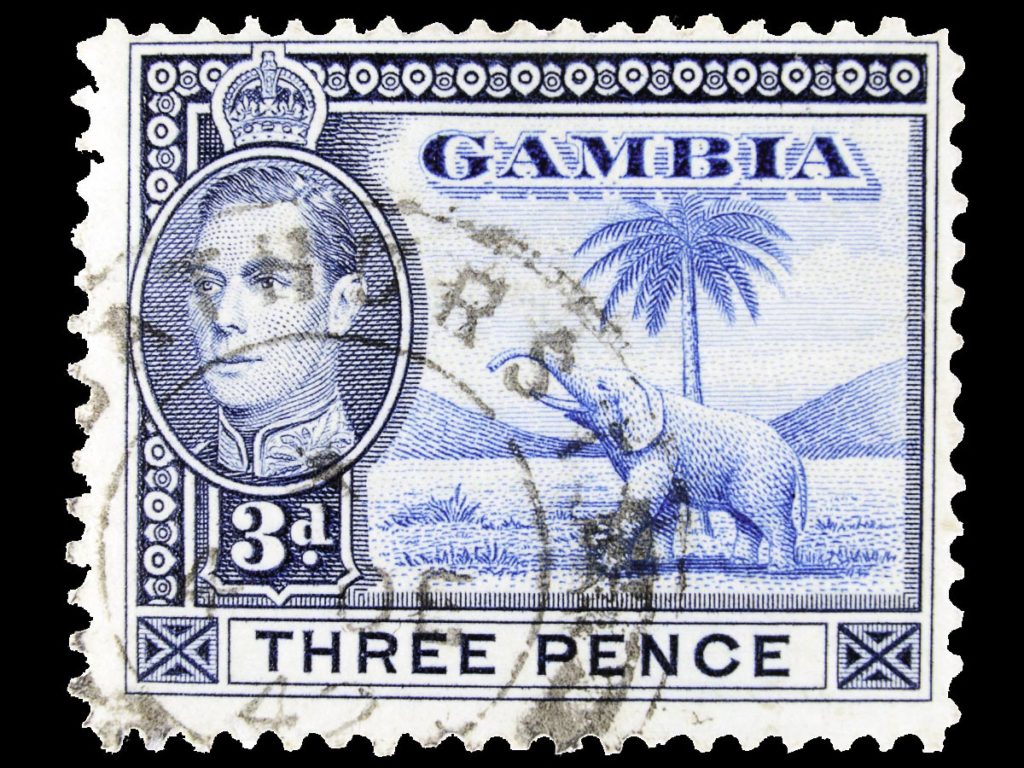The Gambia (full name: Republic of The Gambia) has one of Africa’s earlier philatelic histories: stamps inscribed with GAMBIA were first issued in 1869, when it was part of the British West African Settlements. This period (also known simply as British West Africa) lasted from 1821 — 1850, and then again (when it included the Gambia’s first stamps) from 1866 — 1888.
For a brief period following the dissolution of the British West Africa Settlements, Gambia (more often without ‘The’ during this time) was separated from Nigeria, Ghana, and the rest of its former colonial brothers; this period, from 1888 — 1894, saw Gambia continuing to use stamps inscribed with the colony’s name with the help of Britain.
Browse 153 current Gambia stamps and postal collectibles for sale offers here
From 1894 until 1965, Britain administered the Gambia and its postal system. From 1894 — 1901 the area was called the British Protectorate of Gambia; as of 1901 and lasting the duration of British rule it was known as British Gambia Colony and Protectorate (and was in fact, as the name would suggest, separated into two regions, one a colony and one a protectorate, for administrative purposes).
In 1965 independence was declared and the are renamed itself The Gambia. In 1970, it declared itself The Republic of The Gambia, the name it still uses today.
From 1982 until 1989, The Gambia and the country that nearly completely surrounds it, Senegal, tried to federate as a single state called Senegambia; this fell apart in 1989 when the countries couldn’t agree on how to do it, and no stamps were issued from this union. (Each continued to use its own stamps during the 80s.)
See also: Senegal rare stamps for philatelists and other buyers
Stamps from all eras of The Gambia’s history are available to the diligent hunter.










